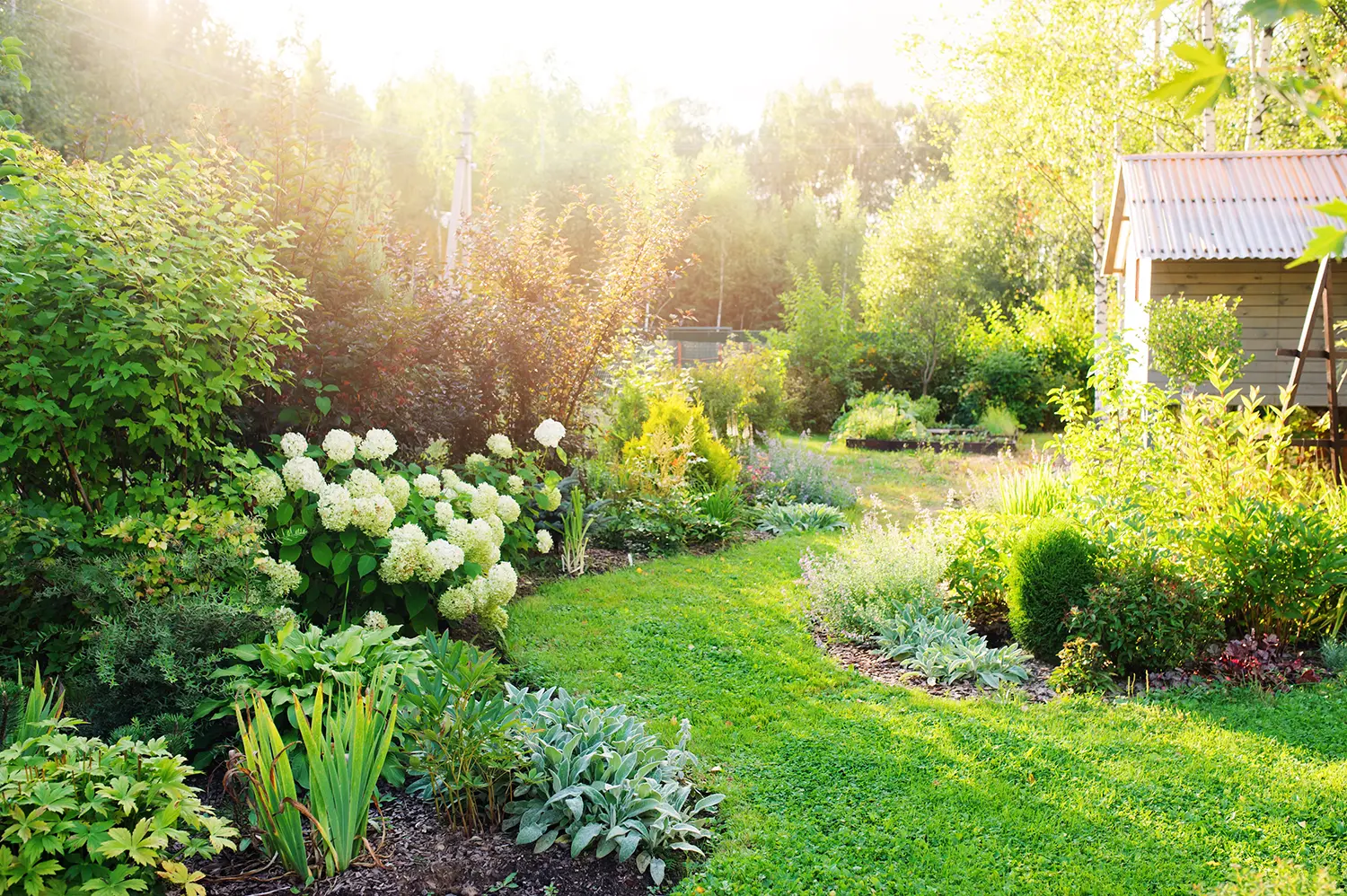As the colors of fall fade, it will be time to prepare your Pennsylvania garden for the cold months ahead. Winter is a time of rest for many plants, but a little pre-winter preparation can help ensure your garden returns healthier and more vibrant in the spring. Whether your plants are rooted in the ground or growing in containers, these steps will guide you through the process of winterizing your garden.
Winterizing Ground Plants: Insulate and Protect
Mulching for Insulation
Mulching is a critical task to check off your list before the first frost. Applying a 1-2 inch layer of mulch around your perennials, shrubs, and trees can prevent soil erosion, conserve moisture, and protect roots from extreme cold. For newly planted trees and shrubs, or plants that aren’t hardy in Pennsylvania’s USDA Zone 7a, consider adding an extra layer of mulch (3-4 inches) for added protection.
Mulch isn’t just for aesthetic purposes; it plays a crucial role in preventing frost heave—a process where soil repeatedly freezes and thaws, pushing plants out of the ground and exposing their roots to damaging cold air and winds. To avoid this, apply 3 to 5 inches of mulch made from materials that won’t compact, such as straw, chopped leaves, or pine straw. Be sure to leave a small gap around the base of trees and shrubs to prevent rot.
Protecting Young Plants and Trees
Winter can be tough on young plants, especially when hungry wildlife like deer, rabbits, and mice are looking for a meal. Wrapping or caging the lower trunks of vulnerable trees and shrubs with materials like burlap can help keep these critters at bay. Focus on newly planted or younger trees, as their tender bark is most at risk.
Pruning for Snow Protection
While it’s best to save heavy pruning for late winter or early spring, some pre-winter pruning can prevent damage from heavy snow. Plants like boxwood, arborvitae, and yews, as well as trees with multiple central leaders, are particularly susceptible to snow damage. Tie the leaders together and prune any structural weaknesses to help them withstand the weight of snow. Additionally, brush off heavy snow accumulation from your trees and shrubs during snowstorms to prevent breakage.
Additional Pre-Winter Tasks
Don’t forget to give your garden tools some TLC before storing them away. Cleaning, sharpening, and oiling tools will prevent rust and keep them ready for spring. And if you’ve had a dry fall, water your evergreens to protect them from winter burn, which occurs when they lose moisture faster than they can absorb it.
Winterizing Container Plants: Protecting Potted Perennials, Shrubs, and Trees
Container plants require special attention during winter since their roots are more exposed to the elements. Here’s how to keep your potted plants safe during Pennsylvania’s chilly months:
Choosing the Right Containers and Locations
The roots of plants in containers can reach the same temperature as the winter air, so it’s important to choose plants that are hardy to at least two zones colder than your area. Larger pots provide better insulation, but even then, it’s wise to take extra precautions. Water your plants well before the soil freezes and consider using an anti-desiccant spray for evergreens to reduce moisture loss.
Methods for Overwintering Container Plants
- Bury the Pot: One effective method is to bury the entire container in the ground, then cover it with mulch. The surrounding soil will insulate the plant roots from extreme cold.
- Move Indoors: If possible, move your pots to an unheated garage, shed, or basement. This protects them from the cold but remember to check the soil moisture periodically to prevent root rot.
- Group and Insulate: For smaller pots, group them together in a protected outdoor location and cover them with mulch, straw, or a thermal blanket. You can also place the pots inside a larger container or box filled with insulating material like packing peanuts or bubble wrap.
Spring Reacclimation
As temperatures begin to warm, remove the protective covers gradually to help your plants adjust to the changing conditions. This gradual reintroduction to the elements will help prevent shock and set the stage for a successful growing season.
Final Thoughts
By taking these steps to winterize both your in-ground and container plants, you can help ensure a healthy and vibrant garden come spring. Whether you’re insulating with mulch, protecting young trees, or carefully storing potted plants, a little effort now will go a long way toward a beautiful garden next year. Happy winter gardening!
Find a Local Pro for Your Outdoor Project
Need professional help with your lawn or have a new outdoor project in mind? Search for local landscapers, pool/spa companies, deck and fencing installation, tree service providers and more using our Find a Pro tool! YBA members are local, insured and reliable!



